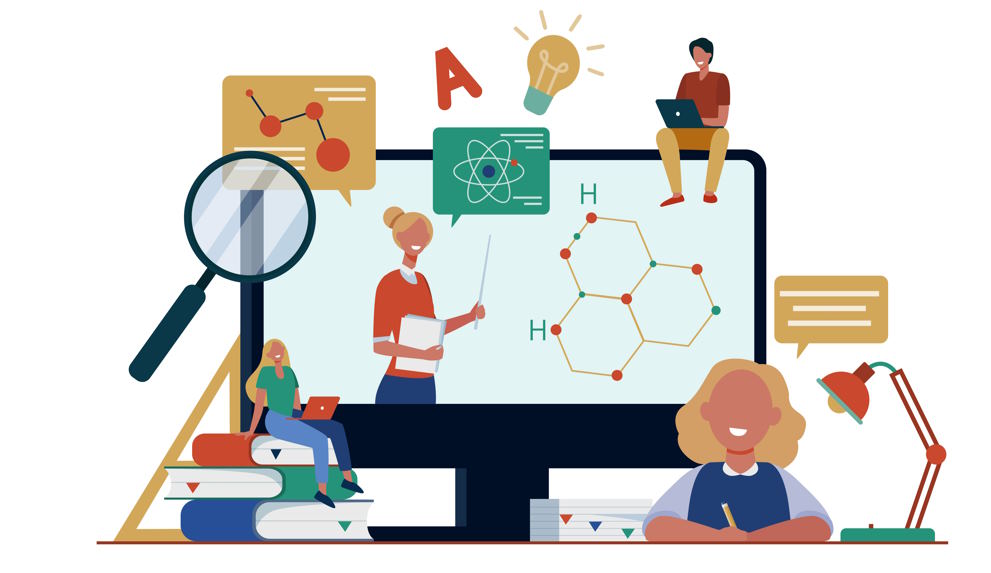The world of education is ever-evolving; staying up-to-date with trends can be difficult. However, understanding the latest education trends can benefit academic institutions, teachers, and students alike. Whether you’re a teacher looking to improve their teaching strategies or an administrator hoping to keep pace with current educational trends, it’s important to stay informed. This blog post will explore some of the most noteworthy emerging educational trends that everyone should know about. We’ll discuss topics like technology integration, personalized learning approaches, and professional development opportunities—all aimed at enhancing both student learning experiences and organizational capabilities. So let’s take a closer look at what these new educational trends have to offer!
What education trends are gaining popularity?
Education trends that are gaining popularity include the use of technology, personalized learning, competency-based education, and flipped classrooms. Technology is transforming the way we learn by providing students with access to online resources and virtual classrooms. Personalized learning allows students to customize their learning experience around their individual needs and interests. Competency-based education focuses more on mastering specific skills than covering traditional course material. Flipped classrooms involve having students watch lectures or complete assignments outside of class so in-class time can be devoted to activities like problem solving or discussions. All of these trends have great potential for preparing students for a successful future.

Another trend gaining traction is project-based learning (PBL). This approach emphasizes real-world application of knowledge and skills so that students can better understand why what they are learning is important. PBL encourages collaboration between students, promotes critical thinking, and allows for more active involvement in the learning process. It is also a great way to engage all types of learners by providing hands-on experiences that build higher-level thinking skills.
Finally, modern education trends are increasingly focusing on developing 21st-century skills such as communication, problem solving, creativity, leadership, and digital literacy. These skills will be essential for success in the rapidly changing world that today’s students will live in and prepare them to become resilient lifelong learners. Schools are beginning to incorporate these skills into their curriculum as well as extracurricular activities like coding clubs or robotics teams. With the help of these trends, students can be equipped to meet the challenges of a rapidly changing world.
The top global education trends that will shape the learning landscape
This year are the continued emphasis on technology-enabled learning, personalized education, and global collaboration. Technology is at the forefront of all educational processes today, from data collection to curriculum development. Digital technologies are being used to enhance teaching and learning experiences in a variety of ways, from online courses to virtual classrooms. Technology can also be used to gather feedback from students as well as track their progress over time.

Personalized education has become increasingly popular in recent years with the rise of adaptive learning platforms that tailor content and assignments based on individual student needs. For example, adaptive learning tools can provide support for students who need additional help while allowing talented learners to work independently at their own pace. This approach helps bridge gaps between diverse groups of learners by providing each student with learning opportunities that match their individual capabilities.
With the world becoming increasingly interconnected, international collaboration and cultural exchange are becoming more important than ever in education. Schools and universities around the globe are creating cross-cultural partnerships to encourage greater understanding between different cultures. By exposing students to different international perspectives, they can develop a better appreciation for global diversity while also gaining an understanding of how other cultures approach similar problems. This type of global collaboration is invaluable in preparing students for future success in an increasingly interdependent world.
The integration of these three trends – technology-enabled learning, personalized education, and global collaboration – will help shape the educational landscape. Through embracing modern technologies, tailoring content to each student’s needs, and encouraging international collaboration, educators can create learning experiences that are both meaningful and engaging. By staying informed of the latest trends in education, teachers will be able to design an effective curriculum that ensures each student’s success.

